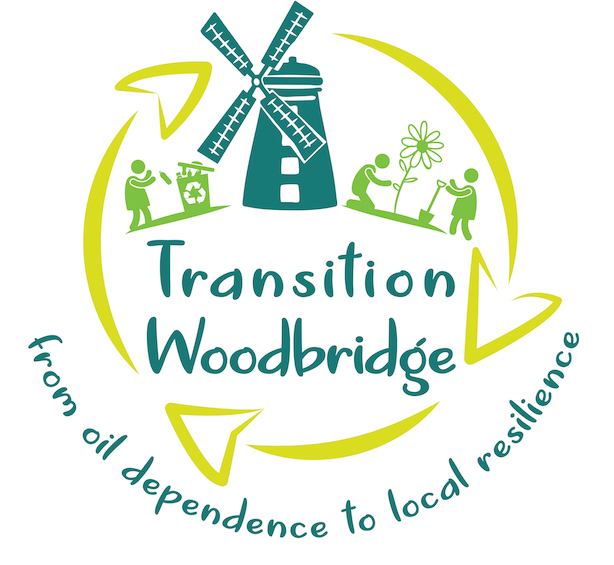
Having heard that the weeds growing in Woodbridge Town Centre were to be controlled by weedkiller, Transition Woodbridge decided they would prefer to remove at least some of these weeds without herbicide. So on a recent Sunday afternoon after the Co-op Supermarket had closed, a group of three Transition Woodbridge members armed with a sharpened hoe, a litter picker, a sweeping brush and dustpan and rubbish bags spent a couple of hours removing the weeds and all the litter. The Turban Centre has remained weed free so far, but sadly within 24 hours there was more litter, particularly cigarette butts, despite there being two rubbish bins nearby.
This effort was part of the group’s aim to improve the biodiversity of our town, to increase the number of wildlife species in Woodbridge and Melton. Around the area Transition Woodbridge has planted over the last 5 years, over 50 apple, pear, plum and damson trees making a scattered community orchard. Volunteers, on a rota, water each tree every week through the summer months for the first 3 years after planting to help their survival in this dry part of the country. The trees are for people living nearby to enjoy – the blossom in the spring and the fruit in the autumn. It is hoped that as the trees grow they will become a focal point for the community, a meeting point, a place for a picnic. In the Edible Garden at Woodbridge Library, members of Transition Woodbridge, with the support of Woodbridge in Bloom and Woodbridge WI, are growing vegetables and soft fruit for everyone visiting the library to pick and enjoy. In various small gardens around town – at the top of Chapel Street, near the skateboard park, in two dinghies in front of the Long Shed at Woodbridge Historic Riverside, Transition Woodbridge members have planted a wide variety of small trees, shrubs, perennial and annual flowers.
 The aim of all these gardens and the orchards is to grow plants that will help bees, butterflies, moths and other insects. The numbers of these creatures have declined significantly in recent years for a variety of reasons but including the use of herbicides/pesticides. No chemicals are used in the gardens and orchards and any compost used is peat free. Transition Woodbridge hope that others in Woodbridge and Melton will follow these examples to help improve biodiversity even more.
The aim of all these gardens and the orchards is to grow plants that will help bees, butterflies, moths and other insects. The numbers of these creatures have declined significantly in recent years for a variety of reasons but including the use of herbicides/pesticides. No chemicals are used in the gardens and orchards and any compost used is peat free. Transition Woodbridge hope that others in Woodbridge and Melton will follow these examples to help improve biodiversity even more.
